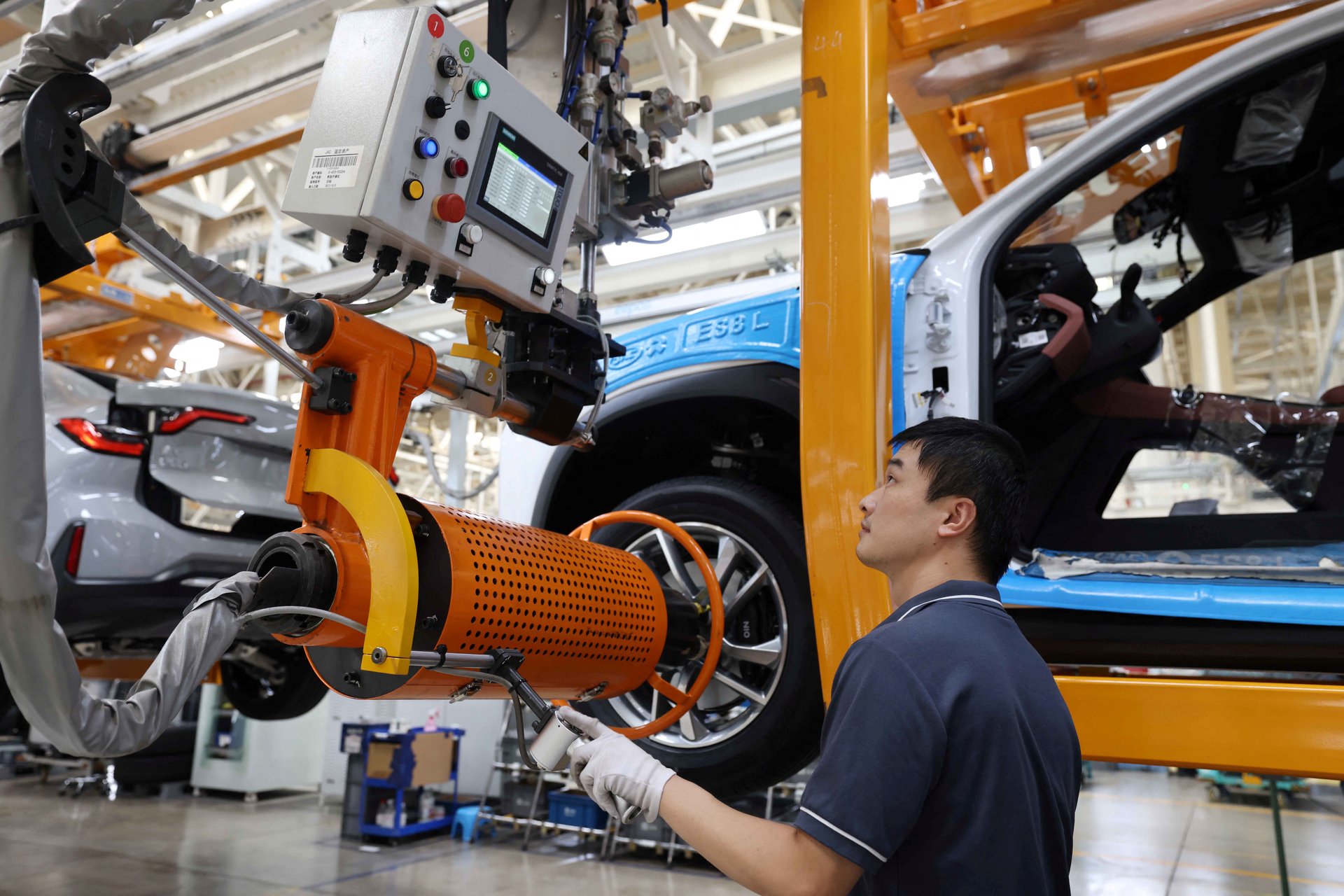Could software be the weak link in China's electric vehicle dominance?
A former Chinese tech official says the country's lack of a dominant EV operating system is a "fatal problem" for its car industry

China dominates the global electric vehicle market. The country accounted for 57% of global EV sales last year, and wields significant control over the EV battery supply chain.
That dominance isn’t set in stone, however. Competition is heating up as other countries ramp up investments in minerals, batteries, and EV production to reduce reliance on China. And China’s EV industry has its own strategic weaknesses, too.
Consider the recent comments of Miao Wei, the former head of China’s ministry of industry and information technology. In a speech last month (link in Chinese), Miao said the Chinese EV industry faces two key challenges: the lack of semiconductors, and the lack of an operating system.
China’s EV chip crunch
The chips constraint is well-known. China has long worked to develop a domestic semiconductor industry to cut dependence on foreign chips, but so far has had mixed success. That effort is now complicated by Washington’s sweeping restrictions on chip technology exports to China. And EVs need a lot of chips—easily twice as many as an internal combustion engine car.
Major Chinese EV makers are now reportedly scrambling to develop their own car chips in response to the US export restrictions, but are unlikely to reach the scale needed within the next few years. Wu Zhixin, vice president of the China Automotive Technology and Research Center, reckons China is at least five years behind (link in Chinese) leading global players on auto chips.
Android and iOS duopoly, EV edition?
The other constraint is less often discussed: software.
According to Miao, who was also previously president of state-owned automaker Dongfeng Motor, China risks losing out on the race to develop its own leading and globally competitive EV operating system.
Miao draws a parallel with PCs and smartphones: The former was defined by the Windows-Intel alliance, and the latter by a duopoly of Google’s Android and Apple’s iOS. As for EVs, the market for operating systems is still relatively fragmented. That raises the stakes of the current competition, as the developer of a dominant EV operating system could wield significant leverage over different carmakers.
“Most [car] companies have not yet recognized that the lack of an operating system will be a fatal problem” that is “more urgent and deadly” than the chip shortage, Miao said, adding that Chinese automakers have a window of three to five years to establish and cement influence in EV operating systems.
The many layers of EV software
But is it plausible that China, which already commands control of numerous segments of the EV supply chain, could lose out on the EV software front?
Andrew Grant, head of intelligent mobility at BloombergNEF, pointed out that Miao’s Android-iOS analogy only goes so far because EV software has many more layers than smartphones.
The surface-level layer connects phones to cars. One level down is the infotainment layer that deals with things like the car’s touch screen, route planning, and the air-conditioning. Then there’s the “mission critical layer” that coordinates the myriad chips in the EV and ensures the car can function properly.
It’s these last two layers that Miao is likely referring to as areas where Chinese automakers need to win market share, said Grant. And ultimately, it’s unlikely that any EV will have software solely from a single company or country.
“The automotive industry is a very global supply chain. By the time you’ve extracted your battery metals…it’s going to be difficult to avoid having some elements of software built elsewhere, or controlled elsewhere,” he said.